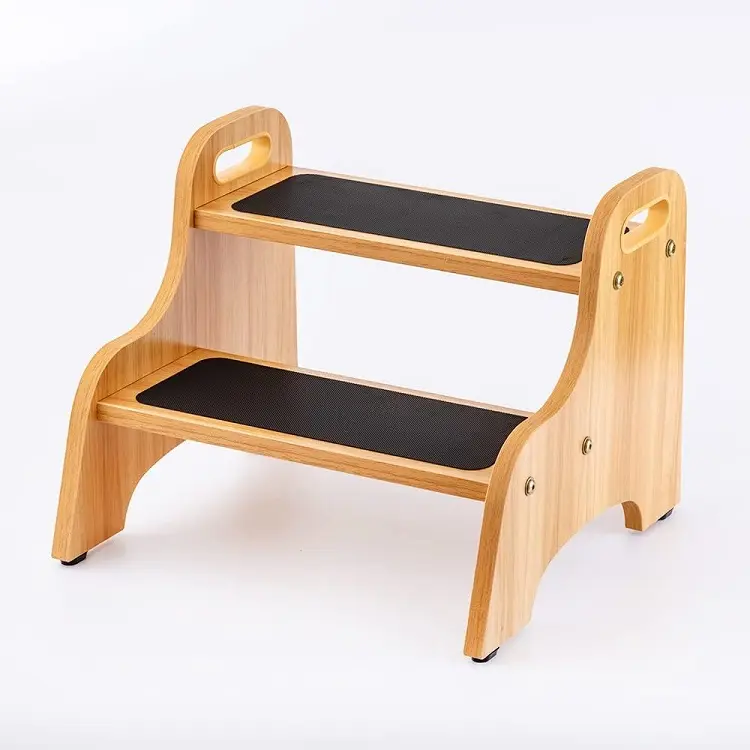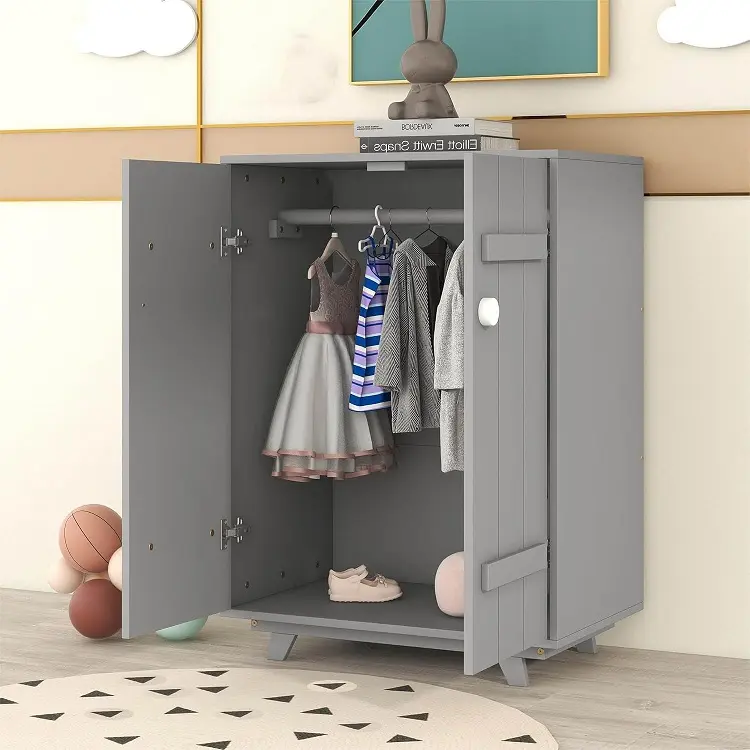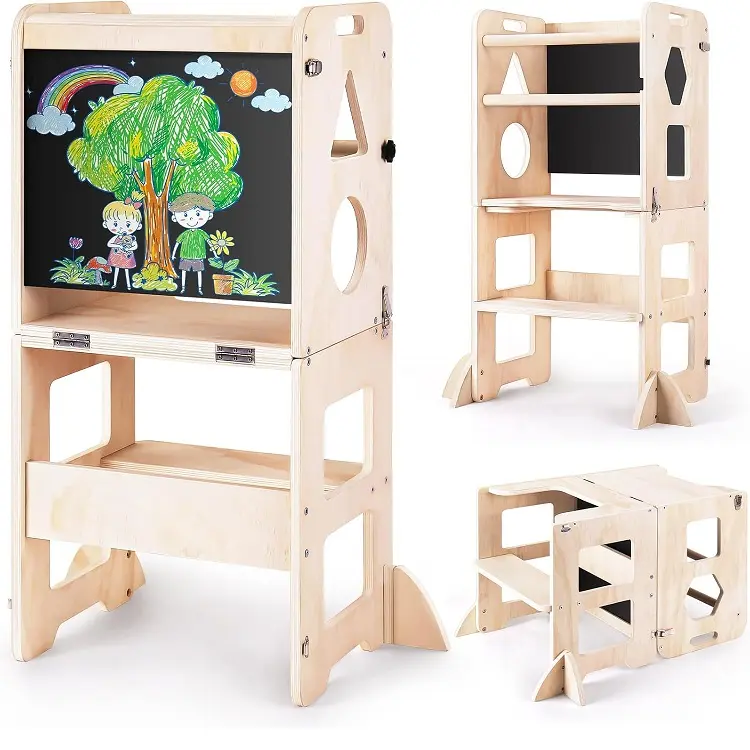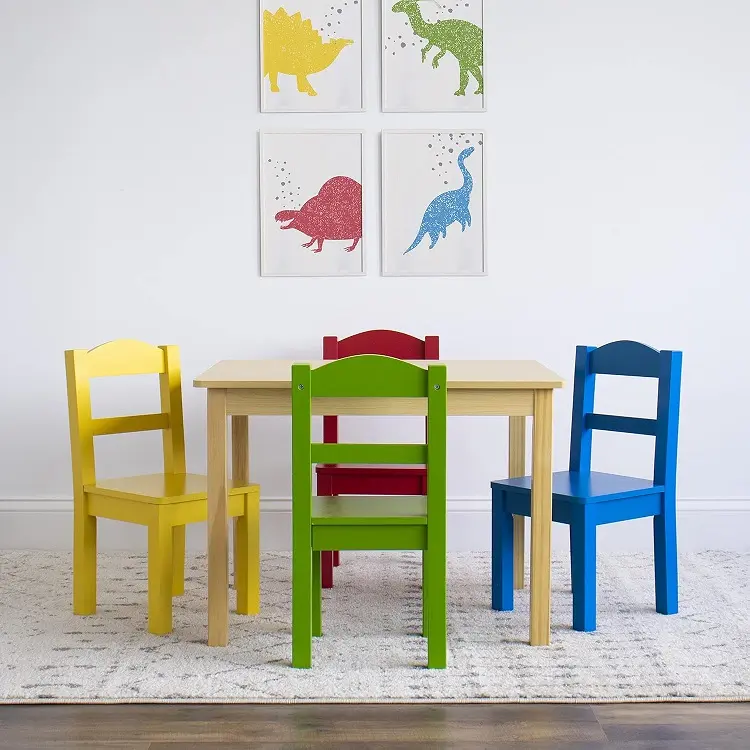Wooden Montessori toys are more than just playthings; they are tools designed to foster learning and development in children. This article explores why choosing wooden Montessori toys made of natural material is a beneficial choice for children's growth, appealing to retailers, educators, and parents alike who value quality and educational merit. Discover the lasting value and educational power these toys offer.
1. What is a Montessori Toy and Why Use Wooden Toys?
A Montessori toy isn't just any plaything. It's a carefully designed tool rooted in the Montessori philosophy, a method of education developed by Maria Montessori. These toys are designed to encourage hands-on learning, independence, and exploration. They often emphasize real-life skills and cater to a child's natural desire to learn through experience. Unlike plastic toys that may be overly stimulating or have limited functionality, Montessori toys are often simple in design, allowing children to focus on the task at hand.
So, why use wooden toys within this framework? Wood, as a natural material, offers several advantages. Firstly, it connects children to nature. The natural grain of the wood and its texture provide a tactile experience that plastic or metal toys can't replicate. Secondly, wooden toys are generally more durable. They can withstand the rigors of play and are less likely to break, making them a sustainable choice for families and educational institutions. Finally, many believe wooden toys are better for the environment, especially when sourced sustainably.
2. What are the Key Educational Benefits of Wooden Montessori Toys?
The educational benefits of wooden Montessori toys are numerous and impactful. Because toys are designed to cater to specific developmental stages, they help children build foundational skills. For example, a wooden puzzle can enhance problem-solving abilities and fine motor skills. Wooden blocks encourage creativity, spatial reasoning, and hand-eye coordination. The weight and feel of wooden materials also help children develop a stronger sense of their physical environment.
Moreover, Montessori toys encourage independent learning. Toys are often designed to be self-correcting, allowing children to learn from their mistakes without constant adult intervention. This fosters a sense of autonomy and builds confidence. The focus on real-world activities, such as sorting, stacking, and building, helps children understand practical concepts and prepare for everyday tasks. These toys also support sensory development, encouraging children to explore different textures and weights.

3. Why are Wooden Toys More Durable Compared to Plastic Toys?
One of the most compelling reasons to invest in wooden toys is their inherent durability. Unlike plastic toys that can easily crack, break, or have small parts snap off, wooden toys are known for their robustness. Toys made of wood can withstand countless hours of play, drops, and even being stepped on without significant damage. This longevity makes them a cost-effective choice in the long run, especially for environments like daycare centers and Montessori schools where toys are used frequently.
This durability of wooden Montessori toys also contributes to sustainability. Instead of ending up in landfills after a short lifespan, wooden toys will last for years, potentially even being passed down through generations. While some plastic toys may be recyclable, the process is often complex, and not all plastics are easily recycled. Wooden toys, especially those finished with non-toxic materials, present a more environmentally friendly option. From a B2B perspective, offering durable products builds trust and reduces the need for frequent replacements.
4. How Do Wooden Montessori Toys Align with the Montessori Philosophy?
The connection between wooden Montessori toys and the Montessori philosophy is profound. Maria Montessori believed in providing children with beautiful, purposeful materials that encourage self-directed learning. Wooden toys perfectly embody this principle. Their simplicity and focus on natural materials like wood align with the Montessori emphasis on connecting with the natural world. Toys are often simple, without excessive electronic features or distracting lights and sounds, allowing children to focus on the inherent learning opportunity.
Furthermore, the nature of wooden toys often lends itself to open-ended play. A set of wooden blocks, for instance, can be used in countless ways, fostering creativity and problem-solving. This contrasts with many plastic toys that have a single intended purpose. The use of natural materials also appeals to the senses in a way that resonates with the Montessori method, which emphasizes learning through sensory experiences. The quality and craftsmanship often associated with Montessori wooden toys also instill a sense of respect for the materials themselves, aligning with Montessori values.
5. What Makes Wooden Montessori Toys a Safe and Healthy Choice?
Safety is a paramount concern for anyone purchasing toys for babies and young children. Wooden toys offer a significant advantage in this area. When made by reputable manufacturers, wooden toys are generally crafted from solid pieces of wood, reducing the risk of small parts breaking off and becoming choking hazards. Furthermore, responsible manufacturers use non-toxic finishes and paints, ensuring that children aren't exposed to harmful chemicals when they mouth or play with the toys.
Unlike plastic toys, which can contain phthalates, BPA, and other potentially harmful chemicals, high-quality wooden Montessori toys prioritize safety. This is particularly important considering that young children often explore the world through their mouths. For retailers and educational institutions, offering toys made with safe, natural materials builds trust with parents and caregivers. Certifications and compliance with international safety standards like ASTM or EN71 further reinforce the safety of these products.
6. How Does the Natural Material of Wooden Toys Enhance Sensory Experiences?
The natural material of wood provides a rich sensory experience that is crucial for child development. The unique texture of wood, its weight, and even its subtle scent offer a multi-sensory engagement that plastic toys often lack. When children handle wooden toys, they can feel the smooth grain, the heft of the material, and the coolness of the wood against their skin. These tactile experiences help develop fine motor skills and sensory integration.
Moreover, the visual simplicity of many wooden Montessori toys allows children to focus on the form and function of the object without being overwhelmed by bright colors or flashing lights. The natural variations in wood grain also make each toy unique, fostering an appreciation for natural beauty. This sensory richness aligns perfectly with the Montessori education approach, which emphasizes learning through hands-on exploration and sensory discovery. These wooden playthings offer a grounding connection to the natural world, even indoors.

7. Why Choose Wooden Montessori Toys Over Other Educational Toys?
While there are many types of educational toys available, choosing wooden Montessori toys offers distinct advantages. Many modern educational toys rely heavily on electronics, batteries, and programmed functions. While these can be engaging, they often dictate the play experience, limiting a child's creativity and imagination. Wooden Montessori toys, on the other hand, are often open-ended, allowing children to explore their own ideas and develop their problem-solving skills.
The emphasis on natural materials also sets wooden Montessori toys apart. As discussed, wood provides a richer sensory experience and is generally a safer and more sustainable choice compared to plastic toys. Furthermore, the toys are designed to support specific developmental milestones, making them highly effective learning tools. The simplicity and beauty of authentic Montessori materials also cultivate an appreciation for quality and craftsmanship. For discerning buyers, the lasting value and educational efficacy of wooden Montessori toys make them a worthwhile investment. Consider our range of high-quality Kids Wood Table & 2 Chairs Set.
8. Where Can You Find Authentic, High-Quality Wooden Montessori Toys?
For retailers, educational institutions, and parents seeking authentic Montessori materials, sourcing high-quality wooden toys is crucial. Exhibitions are an excellent way to connect with manufacturers like us who specialize in children's solid wood furniture. These events offer the opportunity to see and feel the quality of the products firsthand and build relationships with suppliers.
Another avenue is online research. Searching for "wooden Montessori toys" or "Montessori toys wooden" will yield numerous results. However, it's important to vet suppliers carefully, checking for certifications and ensuring they adhere to safety standards. Look for manufacturers who emphasize sustainable sourcing and use non-toxic finishes. Directly contacting factories in countries known for their craftsmanship, like China, where our factory with 7 production lines is located, can also be a fruitful approach. We primarily export to the USA, North America, Europe, and Australia, catering to furniture retailers, children's furniture boutiques, and educational institutions. Our commitment to high-quality solid wood materials, durable and safe design, and compliance with international safety standards makes us a reliable partner.
9. How Do Wooden Montessori Toys Support Different Stages of Development?
Wooden Montessori toys are not limited to a specific age group; they are designed to support children through various developmental stages. For infants and toddlers, simple grasping toys, stacking cups, and shape sorters made of wood help develop fine motor skills and hand-eye coordination. As children grow, more complex materials like wooden building blocks, puzzles, and practical life materials support cognitive development, problem-solving, and independence.
Even older children can benefit from wooden educational materials. Montessori math manipulatives, for example, provide a concrete way to understand abstract mathematical concepts. The versatility of wooden toys means that they can be adapted to suit different learning needs and abilities. This adaptability makes them a valuable resource in Montessori classrooms and homes, catering to a wide range of developmental levels.

10. What are Some Popular Examples of Must-Have Wooden Montessori Toys?
Certain wooden toys are considered staples in Montessori environments. Wooden blocks, in various shapes and sizes, are fundamental for creative building and spatial reasoning. Montessori mobiles, designed with specific visual properties, are excellent for infant development. Stacking rings and shape sorters help refine fine motor skills and problem-solving.
Practical life materials, such as dressing frames and pouring activities, made from wood, allow children to practice real-life skills. Wooden puzzles, especially those with single, clearly defined pieces, aid in visual discrimination and fine motor control. Math manipulatives, like number rods and bead stairs, provide a hands-on way to learn mathematical concepts. These toys come in a variety of forms, but their shared characteristic is their focus on purposeful learning through interaction. Consider also exploring our Wooden Kids Wardrobe with Hanging Rod for practical storage solutions.

Key Takeaways: Why Choose Wooden Montessori Toys?
- Educational Value: Montessori toys are designed to foster specific developmental skills and encourage independent learning.
- Durability: Wooden toys are exceptionally durable, making them a long-lasting and cost-effective choice.
- Safety: Wooden toys, especially those made with non-toxic finishes, are a safer option compared to many plastic toys.
- Sensory Richness: The natural material of wood provides a unique and beneficial sensory experience for children.
- Alignment with Montessori Philosophy: Wooden toys perfectly embody the principles of hands-on learning and connection with nature inherent in the Montessori method.
- Sustainability: Wooden toys are generally a more environmentally friendly choice compared to plastic alternatives.
- Versatility: Wooden Montessori toys support children through various stages of development.
- Timeless Appeal: The simplicity and quality of wooden toys ensure their enduring appeal and functionality.
- Supports Creativity: Open-ended wooden toys encourage imagination and problem-solving.
- Builds Trust: Offering wooden Montessori toys made of natural materials demonstrates a commitment to quality and child well-being.
By understanding the numerous benefits of wooden Montessori toys, retailers, educators, and parents can make informed decisions that support children's growth and development in meaningful ways. Choosing wooden Montessori toys made of natural materials is an investment in a child's future. For your sourcing needs, remember Allen from China, a manufacturer of high-quality children's solid wood furniture. We invite you to explore our range of Kids Dress Up Storage with Mirror and discover the quality and craftsmanship we offer.
Post time: Jan-14-2025





